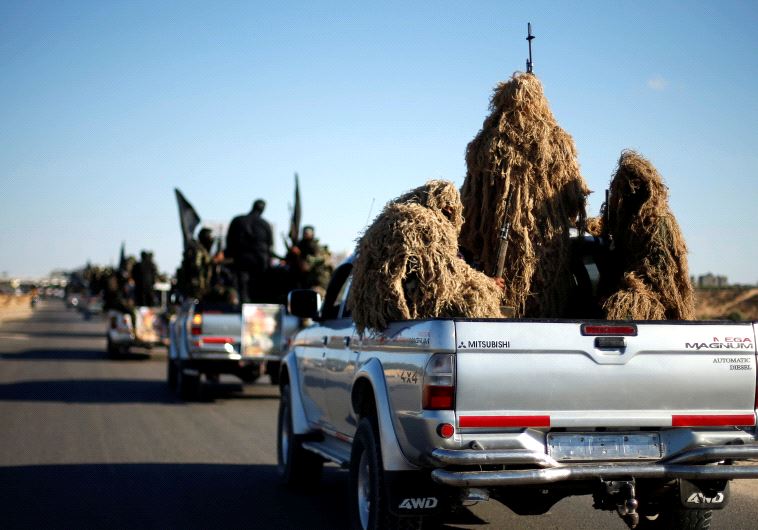Sinai: 150 ISIS militants wounded, killed in Egyptian air strikes
According to reports, around 70 militants were killed and dozens more wounded.
 Arab militants parade in Rafah. ByYASSER OKBI/ MAARIV HASHAVUA, JACOB WIRTSCHAFTER/THE MEDIA LINEUpdated:
Arab militants parade in Rafah. ByYASSER OKBI/ MAARIV HASHAVUA, JACOB WIRTSCHAFTER/THE MEDIA LINEUpdated: